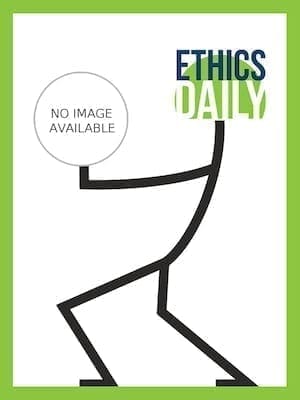An international group of scientists and theologians has issued a strong rebuke of “intelligent design,” a theory that has gained ground with conservative Christians, especially in the United States.
“We believe that intelligent design is neither sound science nor good theology,” the International Society for Science and Religion said in a statement last week.
Established in 2002, the society has about 140 members, who must be nominated by another member, considered leading scholars in the fields of science and religion. Based in Cambridge, England, the society exists to promote dialogue between the sciences and the world’s faith communities. Phee Seng Kang, associate professor of religion and philosophy at Hong Kong Baptist University, is a founding member.
“The society greatly values modern science, while deploring efforts to drive a wedge between science and religion,” the statement said. “Science operates with a common set of methodological approaches that gives freedom to scientists from a range of religious backgrounds to unite in a common endeavor. This approach does not deny the existence of a metaphysical realm but rather opens up the natural world to a range of explorations that have been incredibly productive, especially over the last 400 years or so.”
The intelligent-design movement, the scholars said, began in the late 1980s in response to the perceived secularization of the scientific community. It challenges Darwin’s theology of natural selection, claiming that certain biological features appear to be too complex to have evolved by chance and must have been created by an intelligent designer.
Despite the focus on evolution, the scholars said intelligent design should not be confused with biblical or “scientific” creationism, which relies on a particular interpretation of the Genesis account of creation.
“Although the boundaries of science are open to change, allowing supernatural explanations to count as science undercuts the very purpose of science, which is to explain the workings of nature without recourse to religious language,” the statement said. “Attributing complexity to the interruption of natural law by a divine designer is, as some critics have claimed, a science stopper. Besides, ID has not yet opened up a new research program. In the opinion of the overwhelming majority of research biologists, it has not provided examples of ‘irreducible complexity’ in biological evolution that could not be explained as well by normal scientifically understood processes. Students of nature once considered the vertebrate eye to be too complex to explain naturally, but subsequent research has led to the conclusion that this remarkable structure can be readily understood as a product of natural selection. This shows that what may appear to be ‘irreducibly complex’ today may be explained naturalistically tomorrow.”
The scholars acknowledged that scientific explanations are always incomplete. “Darwinian natural history does preempt certain accounts of creation, leading, for example, to the contemporary creationist and ID controversies,” they said. “However, in most instances, biology and religion operate at different and non-competing levels.”
The notion of intelligent design is irrelevant in many religious traditions, they said, such as Hinduism, Buddhism and Taoism.
“We recognize that natural theology may be a legitimate enterprise in its own right, but we resist the insistence of intelligent-design advocates that their enterprise be taken as genuine science–just as we oppose efforts of others to elevate science into a comprehensive world view (so-called scientism),” the statement said.
Simon Barrow, co-director of the UK religious think tank Ekklesia, welcomed the statement as “a very important development”.
“Intelligent design is a serious category mistake in both theological and scientific discourses,” he said. “It brings the proper engagement of religion and science into disrepute, and benefits those who wish to pursue dubious ideological agendas at the expense of a common search for truth and wisdom.”
Bob Allen is managing editor of EthicsDaily.com.

